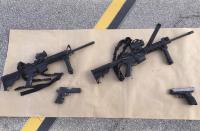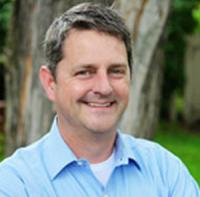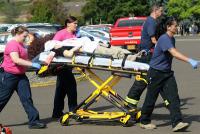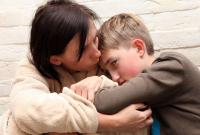-
Reducing civilian firepower would boost police, community safety: Expert

A recent study examined data on the number of homicidal deaths of police in two groups of states with roughly equal number of police officers – the eight states with the lowest levels of gun ownership and the twenty-three states with the highest rate of gun ownership. The study found that, over the period from 1996 to 2010, the rate of police homicide in the high-gun prevalence states was three times as high as the rate of police homicide in the low-gun prevalence states. In addition to restricting the firepower a person can amass, a Stanford University expert advocates efforts to build trust between communities and law enforcement agencies as a way to enhance both police and citizen safety.
-
-
Allocation of police resources affects economic urban welfare, inequality
Decisions about how to allocate police resources in a community are likely to influence not only crime but also housing prices, overall economic welfare, and social inequality, according to a new study by economists. The researchers develop a model for examining the behavior of socioeconomic groups in response to two possible strategies: one in which police are concentrated in certain areas and another in which they are dispersed equally across the city. The researchers conclude that equal dispersal of police will lead to a city which is economically integrated, with housing prices comparable from one neighborhood to the next. Concentrating police in certain locations will lead to unequal neighborhoods but may produce greater overall wealth.
-
-
Quantifying the social cost of firearms: a new approach to gun control

Another week in America, another week of sadness and hand-wringing prompted by gun violence – but the current debate focuses on the most violent actors (terrorists or those whose background check may not check out) and the most lethal guns (military-style rifles) — not necessarily the deadliest guns or those creating the greatest risks to society. A new dialogue is desperately needed among policymakers and the public. And it could begin by shifting our focus away from the regulation of guns toward understanding (and mitigating) the social costs of firearm fatalities. A potential reframing of the issue might be to estimate the social cost of gun deaths, establish the burden borne by each weapon, and seek policies that reflect it in the market for firearms. Across many different areas of government, this kind of analysis is applied all the time when examining the benefits and costs of potential policies. There may be enough Republican and Democrat lawmakers open to the idea of market-based policies that don’t directly restrict gun access, progressively impose higher costs to more dangerous guns, and generate resources to improve the safety and security associated with guns in America.
-
-
Bahamas warns young men traveling to U.S. to “exercise extreme caution” around police
The government of the Bahamas late last week has issued a travel guidance to young Bahamian men travelling to the United States on holiday, warning them to “exercise extreme caution” when interacting with the U.S. police officers. “Do not be confrontational and cooperate” with the police, the Foreign Ministry’s travel guidance says.
-
-
Five officers killed by a sniper in Dallas (updated)
Five police officers were killed, and seven officers and two civilians injured, on Thursday by 25-year old Micha Xavier Johnson, who opened fire on the officers during a protest march in Dallas. During a 3-hour standoff with the police, Johnson said he was not associated with any group or organization, and that his only purpose was to kill White people – especially White police officers. It was the deadliest attack on law enforcement officers since the 9/11 terrorist attacks.
-
-
Can we predict who will become mass shooters?
The Orlando nightclub attack on 12 June was among the deadliest in American history, and it was the 133rd mass shooting to take place in the United States in 2016 alone. In the aftermath of the shooting, there has been a growing discussion about introducing new laws to make it harder for mad or bad people to get their hands on guns. But what else can we do to try to bring this under control? Working on ways to perhaps recognize people who might develop into mass killers – and the reasons they have for doing so – would obviously be an important step forward.
-
-
Applying public health models to gun violence

Research treats shootings like an epidemic — by applying public health models. Data indicate an individual’s odds of being a gunshot victim increase with exposure to gun violence. The work focuses not on mass shootings or isolated incidents of violence – rather, the researchers have worked to gather data on populations that face persistent threats of gun-related attacks and homicides, often connected to gang and drug activity.
-
-
Brazil lends $895 million to Rio de Janeiro for Olympics security
Brazil’s government has loaned 2.9 billion reais ($895 million) to the state of Rio de Janeiro to cover some of the security costs of the Olympic Games, which open on 5 August. The state of Rio de Janeiro last week declared a state of fiscal emergency. Government officials said the loan was meant to guarantee safety and security at the Olympic Games. As many as half a million foreign visitors are expected to arrive in Rio during the state’s worst financial crisis in decades.
-
-
Supreme Court: Domestic violence perpetrators can be banned from buying, owning guns

The supreme court has ruled that individuals convicted of a domestic violence “misdemeanor” can be prohibited from owning or purchasing a gun. Previous law stated that only those convicted of intentional abuse would be barred from owning weapons, but a “reckless” assault could be pardoned. In the United States, around five women a day are shot to death by current or former intimate partners. At least 52 percent of American women murdered with guns every year are killed by intimate partners or family members.
-
-
French beaches to be patrolled by armed police lifeguards
The vacation season in France is about the start, and the French authorities have decided to place armed police lifeguards – who will also wear bullet-proof vests — on the country’s busiest beaches amid fears that terrorists may target beachgoers and vacationing families. Islamist terrorists have recently attacked beach resorts in Tunisia and Ivory Coast.
-
-
Hawaii becomes first state to place gun owners – both residents and visitors -- in a federal database
Hawaii has become the first U.S. state to place its gun owners on a federally managed database — the FBI’s “Rap Back” criminal monitoring system — and monitor them for criminal activity. The new law would permit Hawaii police to determine whether gun owners ought to be allowed to keep possession of a firearm following an arrest.
-
-
License and registration, please: how regulating guns like cars could improve safety
In the midst of the Senate’s failure to agree on measures designed to tighten controls around the sales of firearms, a new idea is emerging: Regulating guns like cars. In some regards, we are already there. Operating a firearm, like operating a motor vehicle, requires a license in many jurisdictions. Certain types of criminal offenses – domestic violence in the case of firearms, drinking and driving in the case of automobiles – can result in a suspension or revocation of that license. These rules focus on the competency of users. Regulating guns like cars is a more tried and true approach to managing dangerous technologies than the simplistic prohibitionist logic of simply keeping guns away from those we categorize as “the bad and the mad.”
-
-
Australia 20 years after gun reform: No mass shootings, declining firearm deaths
Australia introduced unprecedented gun laws following a mass firearm shooting in April of 1996. Since these major gun law reform twenty years ago, Australia has seen no mass shootings and an accelerating decline in intentional firearm deaths, the Journal of the American Medical Association reports. “The absence of mass shootings in Australia in the past two decades compares to thirteen fatal mass shootings in the eighteen years prior to these sweeping reforms,” says one of the study’s authors.
-
-
Community policing practices to prevent violent extremism
A new manual designed for police departments identifies a set of promising practices for using community policing to prevent violent extremism. “Creating a comprehensive community outreach program can build the kind of trust necessary to combat violent extremism,” said the manual’s lead author.
-
-
Trump calls for profiling of Muslims, surveillance of mosques
Providing more details about his response to the Orlando shooting, Donald Trump on Sunday proposed the profiling of Muslims by law enforcement, and the nation-wide implementing of a Muslim surveillance programs which was used for a while by the NYPD, but which was discontinued after it had failed to yield a single useful lead.
-
More headlines
The long view
How Male Grievance Fuels Radicalization and Extremist Violence
Social extremism is evolving in reach and form. While traditional racial supremacy ideologies remain, contemporary movements are now often fueled by something more personal and emotionally resonant: male grievance.
